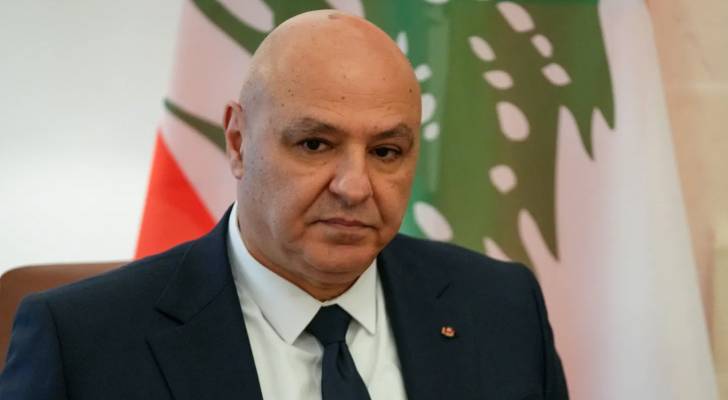Lebanese President Joseph Aoun (Credit: Reuters)
President Aoun: Iran should not interfere in Lebanon’s internal affairs
Lebanese President Joseph Aoun has made clear that Lebanon will not tolerate external interference in its internal affairs, explicitly addressing Iran’s role in the country.
In an interview with Al Arabiya, Aoun said, “Iran is a friendly state, but on the basis of preserving our sovereignty … our message is clear: Iran will not interfere in our affairs.”
The president revealed that he communicated this directly to Iran’s National Security Council Secretary Ali Larijani, who visited Beirut last week. Aoun emphasized that Lebanon’s relationship with Tehran “is based on respect” and stressed that “the question of Hezbollah’s weapons is a Lebanese decision and does not concern Iran.”
Read more: Iran’s Security Chief to visit Lebanon amid Hezbollah disarmament tensions
Aoun also commented on the US-brokered plan delivered by envoy Tom Barrack, which he said included “Israeli withdrawal and the revival of Lebanon’s economy.” Lebanon, he explained, faced a choice: accept the American proposal or risk isolation.
“But we did not receive any threats to implement the proposal’s terms,” Aoun noted. “We are waiting for Washington to secure Israel’s approval of Tom Barrack’s plan.”
On domestic politics, Aoun described his relationship with Parliament Speaker Nabih Berri as “more than excellent” and underlined his commitment to discussing issues “only under the authority of the state.” “Our top priority is ensuring the country’s security and stability,” he added. He stressed that Lebanon seeks to avoid both internal and external conflicts, saying, “They have exhausted us.”
Highlighting Lebanon’s diverse society, the president said, “The Shia community is an essential and influential component of our country. There is no threat to any sect, and I stand by my words.” He welcomed external support for Lebanon that respects its sovereignty, thanking Saudi Arabia for helping end the presidential vacuum and emphasizing Lebanon’s commitment to improving relations with Syria and demarcating the border “under Saudi sponsorship.” “We will not compromise on our relationship with Saudi Arabia,” he said.
Aoun also addressed Lebanon’s economic reforms, stating, “Our country is on the path to economic prosperity through the reforms we are implementing.” He stressed that no individual is above accountability and praised the judiciary’s efforts to combat corruption.
Read more: Lebanon’s 24-hour power blackout sparks sabotage investigation
On regional and security matters, the president reaffirmed Lebanon’s firm stance on Palestinian issues.
“We have not opened the door to any direct dialogue with Israel,” he said, reiterating opposition to Palestinian resettlement. Regarding Palestinian camps, he noted, “The decision to disarm the camps was taken by the Palestinian Authority itself, but the Iran-Israel conflict and Palestinian considerations have delayed implementation.”
The political scene in Beirut remains tense ahead of the arrival of US envoy Tom Barrack and Deputy Special Envoy for the Middle East Morgan Ortagus, expected to propose new ideas for consolidating all weapons under state control. The visit follows recent comments from Hezbollah leader Naim Qassem, who accused the government of “handing Lebanon over to Israel” by stripping Hezbollah of its weapons, warning of potential “civil war.” Prime Minister Nawaf Salam rejected the remarks as a “veiled threat.”
Read more: "We reject any interference in our internal affairs," Lebanon tells Iran
For the first time, senior Lebanese officials have confronted an Iranian envoy with direct language about sovereignty, signaling a firmer stance against Tehran and Hezbollah. Iran has long been Hezbollah’s primary backer, providing financial and military support. The government’s decision, hailed by opponents as “historic," aligns with the US-brokered ceasefire that ended the Hezbollah-'Israel' conflict on November 27, stipulating that only Lebanon’s official security and military institutions may hold arms.




